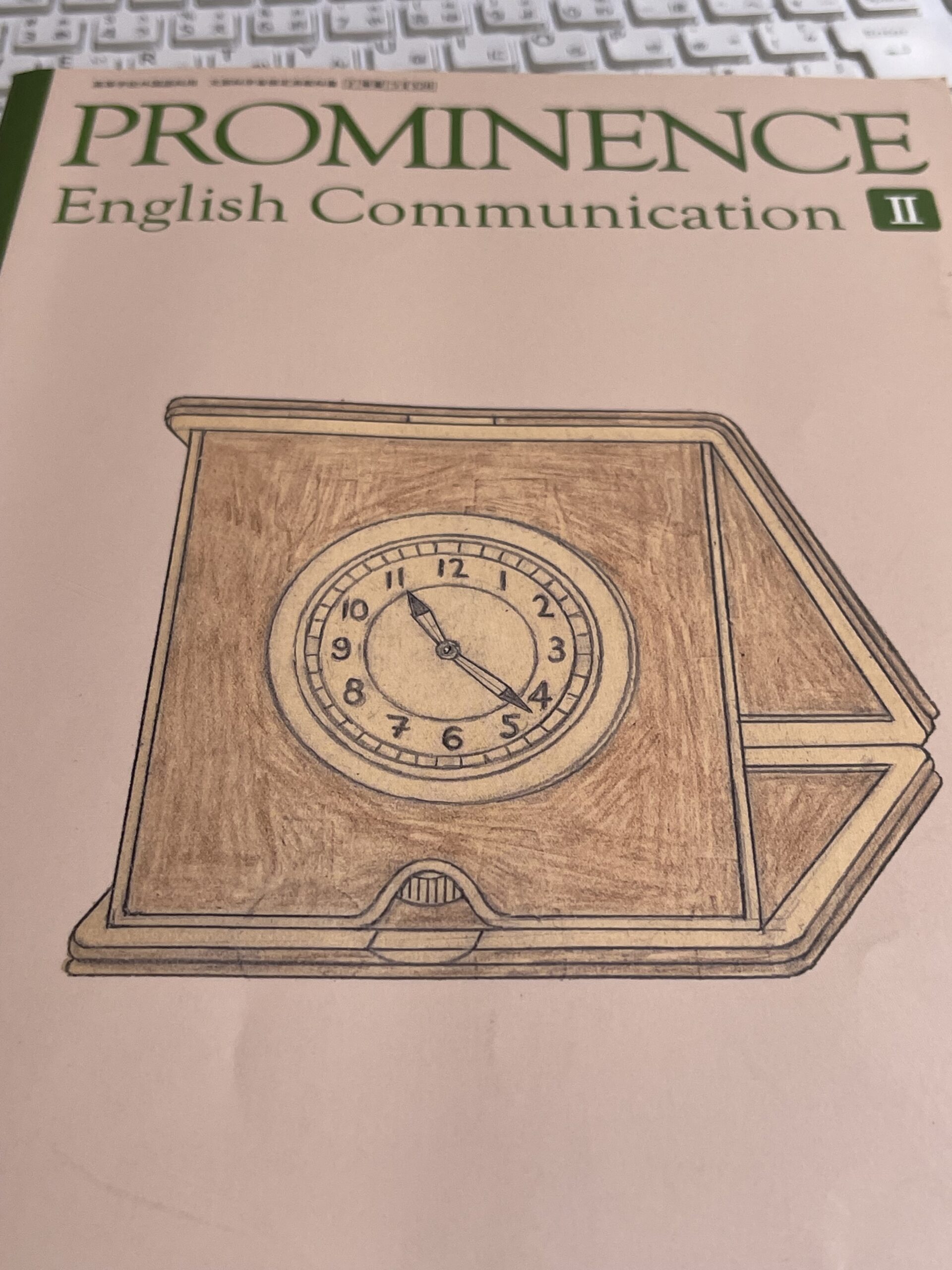奈良学園前と西宮夙川にある英語専門塾です。試験前の生徒の為にオリジナルのプリントを作って対応しております。その中から少しずつアップしていきます。
高校生が使う プロミネンス2のレッスン1です。。
自習勉強にお役立てください。
Part 1
Many of us feel great joy when we know we are sharing the same feeling with others. ❶This is probably one of ( ) ( ) ( ) people enjoy going to a big stadium to watch sports. When we cheer and scream for our favorite team with other fans, we feel excited and happy. Sharing feelings with others has great benefits.
私たちの多くは他者と同じ感情を共有していることを知った時に大きな喜びを感じます。❶これば多分、人々がスポーツを見るために大きなスタジアムに行くことを楽しむ理由の1つでしょう。私たちは他のファンと一緒に大好きなチームの為に応援したり、叫んだりするときに、楽しいとか幸せとか感じます。他者と感情を共有することは幸せだと感じます。
❶( ) ( ) ( ) ( ), in our daily lives, we often ❷( ) ( ) ( ) other people. Why? Because we have different backgrounds and experiences. ❸( ) ( ) these differences ( ) sometimes cause misunderstandings or conflicts in communication. When we have communication problems, however, we should not ❹( ) ( ) quickly. If we learn to have empathy for others, we will be able to ❺( ) ( ) these problems.
❶一方、日常生活で、私たちは他人の理解❷することで良く困難を抱えます。なぜでしょうか?なぜならば、私たちは違った背景や経験を持っています。❸これらの違いが、コミュニケーションにおいて時々、誤解や、争いを引き起こします。(強調構文で)しかし、コミュニケーションに問題がある時、すぐに❹諦めるべきではありません。もし、他人に対する共感を持つようになったら、私たちはこれらの問題を❺克服する事ができるでしょう。
p.8 & 9 Part 2
Empathy is the ability to understand other people’s feelings or situations from their perspectives. It means ❶( ) ( ) in someone else’s shoes. ❷( ) ( ) ( ) ( ) building good relationships. If you want to improve your ability to empathize, you should become an active listener. ❸Active listeners are ( ) self-centered ( ) judgmental. They try to avoid such expressions as “You shouldn’t feel that way,” or “If I were you, I would feel this way.” Rather, they try to restate or paraphrase ❹( ) they have heard. For example, they may say something like “❺( ) ( ) ( ) I understand you correctly,” or “So what you mean is…” They try to accept different points of view. If you become an active listener, you will be able to increase your empathy for others. ❻( ), you will understand other people better.
共感は他者の観点からの感情や状況を理解するための能力です。❶それはほかの人の立場に立つ事、(他の誰かの靴の中に、自分自身を置くと言う)ことを意味します。❷共感は良い関係を構築する事が決定的です。もし共感するための能力を高めたいなら、積極的な聞き手になるべきです。❸積極的な聞き手は自己中心的であったり、批判的であったりすることではない。彼らは次のような表現を避けようとする、『あなたはそんな風には感じるべきではない』とか『もし私があなただったら、私はこんな風に感じるだろう』。むしろ、❹彼らは聞いた事を繰り返したり、言い換えたりしようとする。例えば、彼らは『❺あなたを正しく理解しているかどうかを、確かめてみましょう』とか、『つまり、あなたの言いたいことは・・・』のような事を言うかもしれません。彼らは、異なった観点を受け入れようとします。もし、積極的な聞き手だったら、他者への共感を高めることが出来るでしょう。❻最終的には、他人をよりよく理解するでしょう。
p.10 & 11 ( Part 3 )
To see how important the ability to empathize is, ❶( ) ( ) a doctor-patient relationship. Okayama University conducted an interesting experiment. Thirty doctors ❷( ) ( ) ( ) two groups, A and B. The doctors in Group A attended a workshop and learned ❸( ) ( ) communicate with patients by empathizing with them. Through active listening, they were trained to understand the struggles and concerns of cancer patients. The doctors in Group B did not attend the workshop. Then, the doctors in each group treated about 300 patients. After the treatment, the patients were asked to❹( ) ( ) a questionnaire. Their answers were surprising. The patients who were treated by the doctors in Group A felt ❺( ) emotional pain ( ) ( ) ( ) were treated by the doctors in Group B. They also felt they understood the doctors’ explanations better. ❻( ), ❼they were ( ) ( ) ( ) their present physical condition and plans for future treatment. This shows ❽( ) ( ) ( ) ( ) ( ) doctors ( ) be able to empathize with their patients.
共感する能力がどれくらい大切かを見るために、医者と患者の関係に❶ついて考えましょう。岡山大学で面白い実験が行われました。30人の医師がAとBの❷二つのグループに分けられました。グループAの医師はワークショップに出席し、患者に共感することで患者との❸コミュニケーションの取り方を学びました。積極的に聞くことを通して、彼らはがん患者の苦闘や心配を理解するように訓練されました。グループBの医師は、ワークショップには参加しませんでした。それから、それぞれのグループの医師たちは約300人の患者の治療をしました。治療後、患者はアンケート❹を記入するように頼まれました。彼らの答えは驚くべきものでした。グループAの医師の治療を受けた患者は、グループBの医師から治療❺を受けた人々よりも、より少ない感情的な痛みを感じました。彼らはまた、医師の説明をよりよく理解できたとも感じました。❻さらに、彼らは今の身体的状態や将来の治療計画❼にもっと前向きでした。このことは、❽医者が患者に共感出来ることがいかに重要であるかを示しています。
p.12 Part 4
Empathy also ❷( )a central ( ) in the old Japanese tradition ❶( ) chanoyu, or tea ceremony. ❸This tradition ( ) ( ) ( ) for more than 450 years. The purpose of tea ceremony is ❹( ) ( ) to prepare and drink tea. Participants share an experience that embodies harmony and respects. For example, the host is expected to entertain the guests ❺( ) ( )anything ( ) ( ). The guests are expected to understand their host’s hospitality and show their gratitude. By showing deep empathy to ❻( ) ( ), they can enjoy their time together.
共感は茶の湯や茶道❶といった日本の古来の伝統の❷中心的な役割もまた果たしています。❸この伝統は450年以上にわたって実践されてきました。茶道の目的は、お茶を用意して飲む❹ことだけではありません。参加者は、調和と尊敬を体現する経験を共有します。たとえば、ホストは❺何も見返りを求めずにゲストを楽しませることが期待されます。ゲストは彼らのホストのおもてなしを理解し、感謝の意を表します。❻お互いに深い共感を示すことで、彼らは一緒に時間を楽しむことができます。




